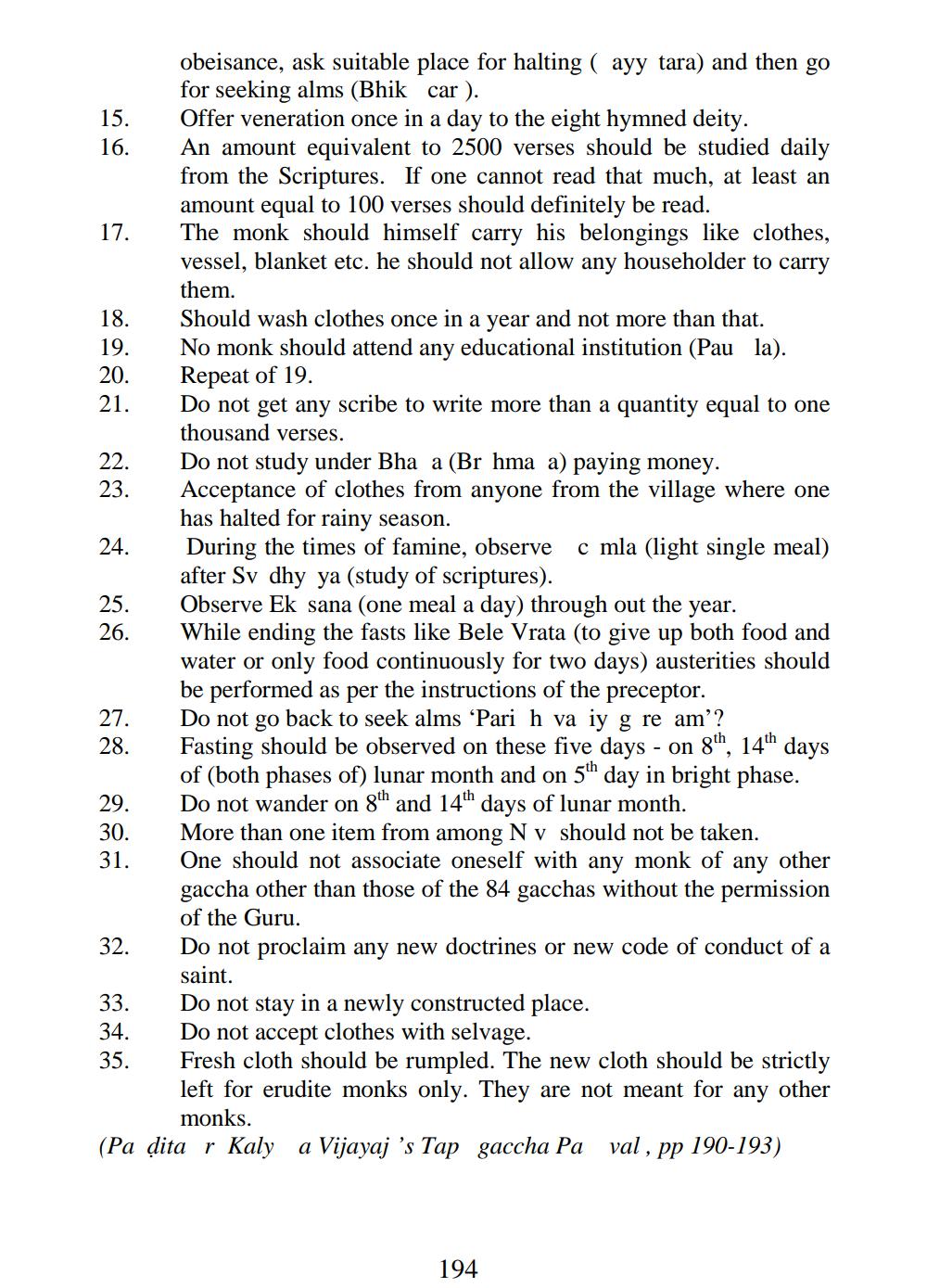________________
17.
20.
obeisance, ask suitable place for halting ( ayy tara) and then go for seeking alms (Bhik car ). Offer veneration once in a day to the eight hymned deity. An amount equivalent to 2500 verses should be studied daily from the Scriptures. If one cannot read that much, at least an amount equal to 100 verses should definitely be read. The monk should himself carry his belongings like clothes, vessel, blanket etc. he should not allow any householder to carry
them. 18. Should wash clothes once in a year and not more than that. 19. No monk should attend any educational institution (Paula).
Repeat of 19. 21. Do not get any scribe to write more than a quantity equal to one
thousand verses. Do not study under Bha a (Br hma a) paying money. Acceptance of clothes from anyone from the village where one has halted for rainy season. During the times of famine, observe c mla (light single meal) after Sv dhy ya (study of scriptures). Observe Ek sana (one meal a day) through out the year. While ending the fasts like Bele Vrata (to give up both food and water or only food continuously for two days) austerities should be performed as per the instructions of the preceptor.
Do not go back to seek alms 'Pari h va iy g re am'? 28. Fasting should be observed on these five days - on 8th, 14th days
of (both phases of) lunar month and on 5th day in bright phase. 29. Do not wander on 8th and 14th days of lunar month. 30. More than one item from among N v should not be taken. 31. One should not associate oneself with any monk of any other
gaccha other than those of the 84 gacchas without the permission of the Guru. Do not proclaim any new doctrines or new code of conduct of a saint.
Do not stay in a newly constructed place. 34. Do not accept clothes with selvage.
Fresh cloth should be rumpled. The new cloth should be strictly left for erudite monks only. They are not meant for any other
monks. (Pa dita r Kalya Vijayaj 's Tap gaccha Pa val , pp 190-193)
35.
194




